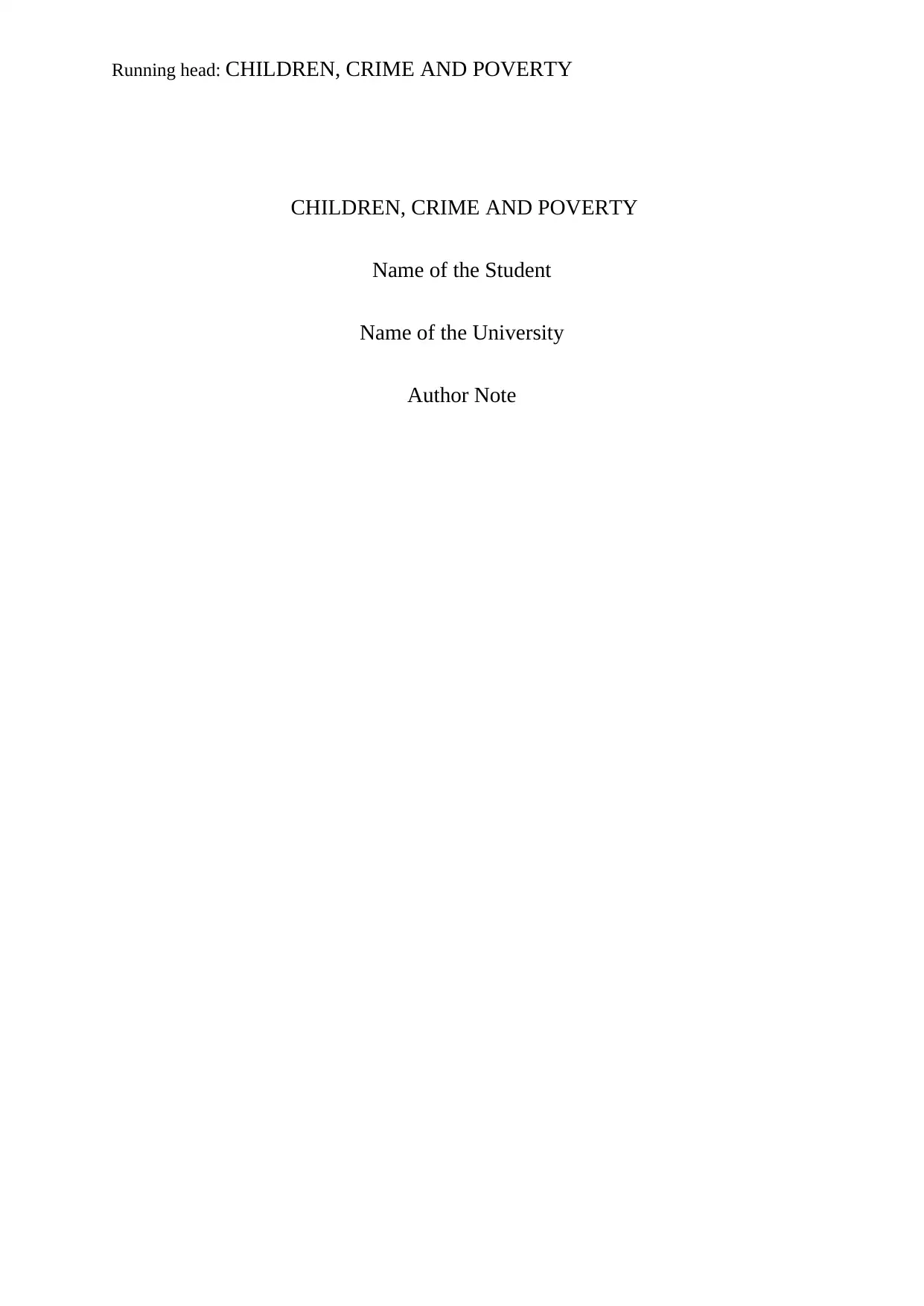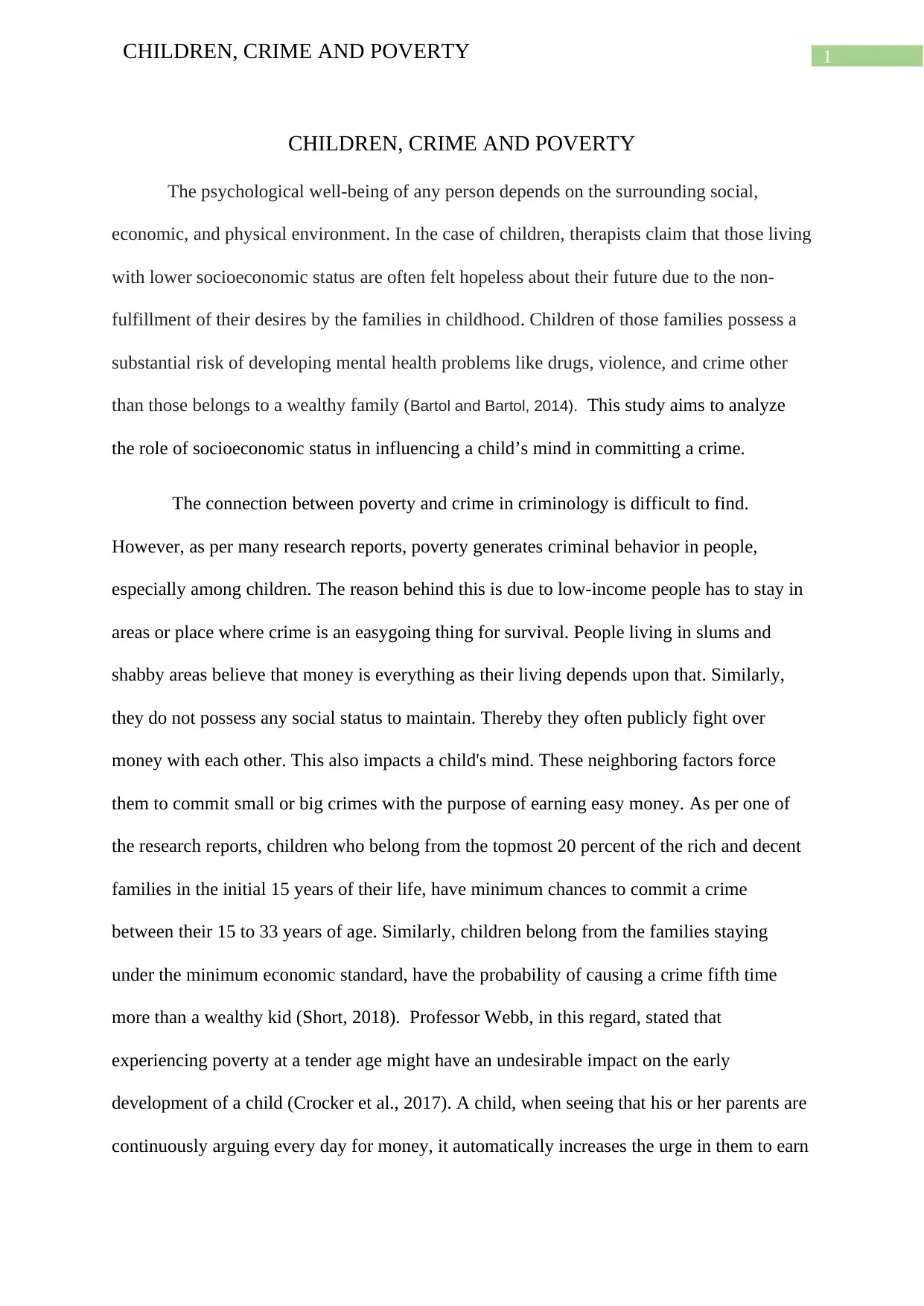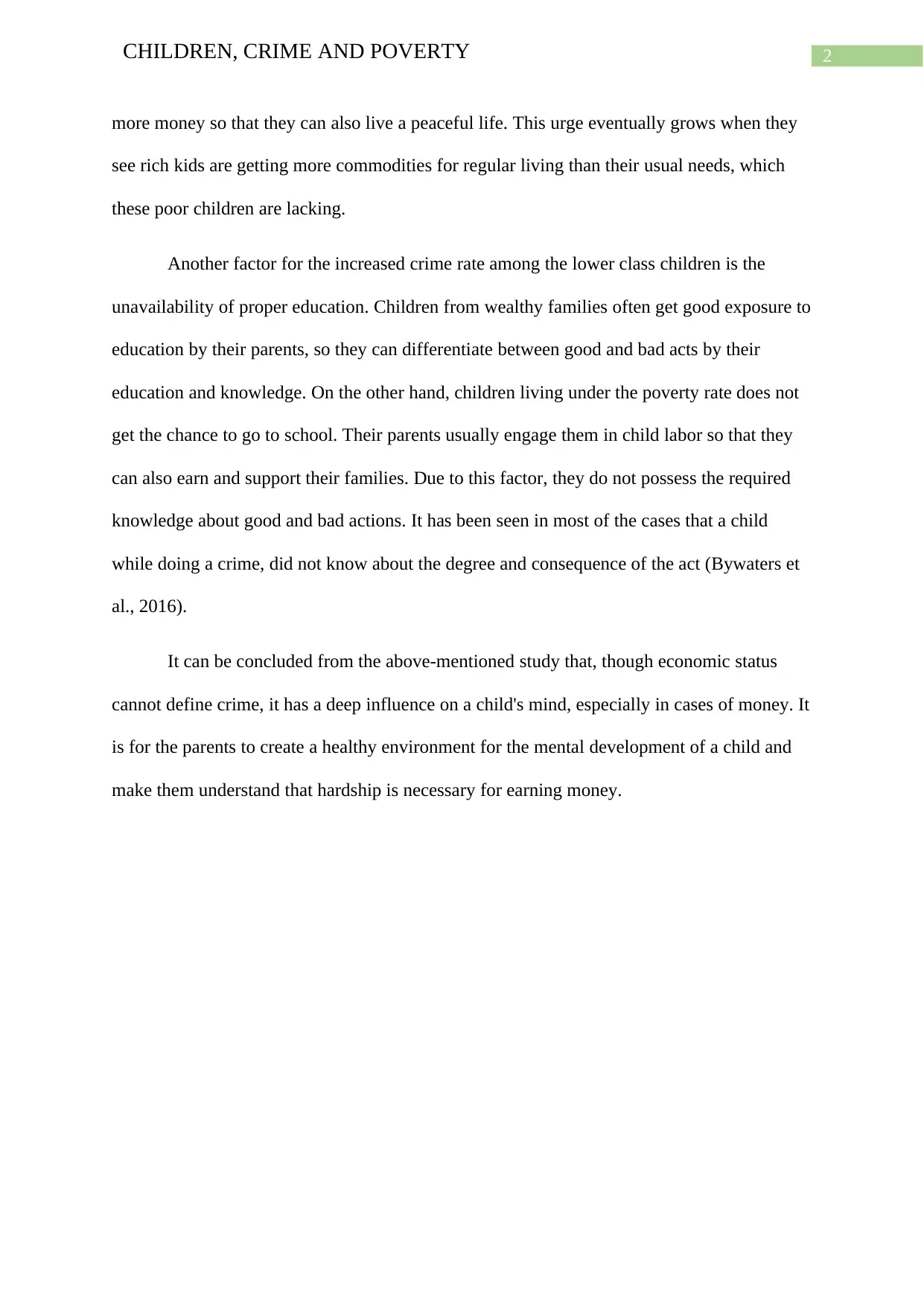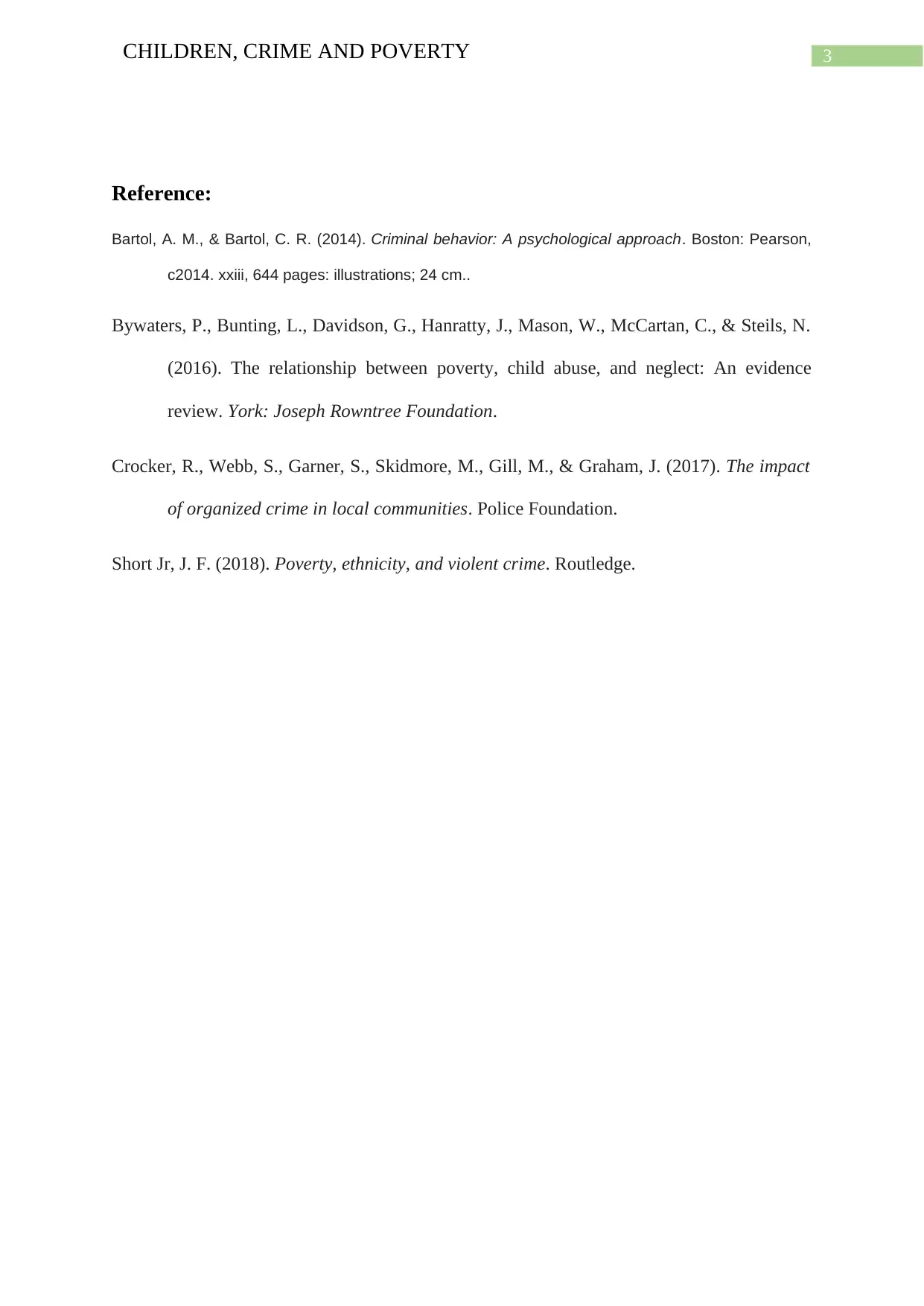Children, Crime, and Poverty: Socioeconomic Influences on Behavior
VerifiedAdded on 2022/08/26
|4
|818
|26
Essay
AI Summary
This essay explores the psychological impact of socioeconomic status on children and its correlation with criminal behavior. It examines how poverty can lead to mental health problems and increased involvement in crime, particularly among children. The essay highlights that children from low-income families are at a higher risk of committing crimes due to environmental factors such as living in high-crime areas and a lack of access to education. It references studies showing that children from wealthier families have a lower likelihood of committing crimes compared to those from impoverished backgrounds. The essay also discusses the role of parental arguments about money and the lack of educational opportunities in contributing to criminal behavior. It concludes that while socioeconomic status doesn't solely define crime, it significantly influences a child's mindset, emphasizing the importance of creating a supportive environment and teaching children about the value of hard work.
1 out of 4









![[object Object]](/_next/static/media/star-bottom.7253800d.svg)